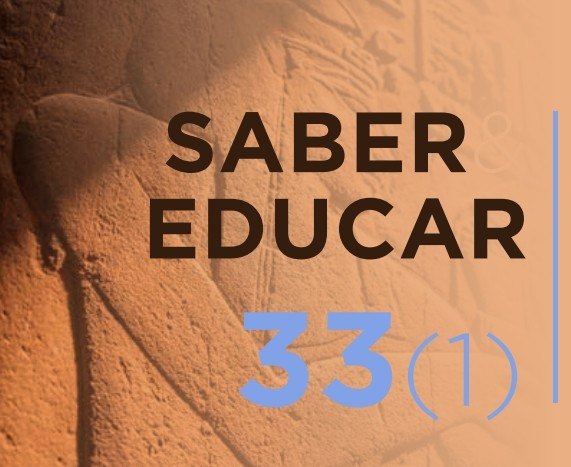Teaching and learning history in the 21st century
Challenges and potential
DOI:
https://doi.org/10.25767/se.v33i1.41438Keywords:
Teaching History, New Pedagogies, Challenges of the 21st centuryAbstract
Is it possible to establish a new relationship between the new pedagogies and objectives of History teaching, with the current demands of a changing school? How can we make History a subject that students enjoy? Is the issue only a question of methodologies? How is the problem seen at the level of subject management? We cannot continue to stand by and watch the “spectacle” of the assault on the “fortress” of History, since it is essential for students and other subjects in the curriculum to understand the temporal context and their own place in that reality.
References
Bloch, M. (1998). Apologia da História ou O Ofício do Historiador. Estratégias Criativas.
Bruner, J. (1996). Ensinar o Presente, o passado e o Possível. Cultura da Educação.Ed. 70.
Canário, R. (2005). O que é a Escola? Um “olhar” sociológico. Porto Editora.
Croce, B. (1938). La storia come pensiero e come azione. Laterza.
Febvre, L. (1973). Combates pela História. Martins Fontes.
Gadamer, H.-G. (1998). Os Problemas epistemológicos das ciências humanas. In O Problemas da Consciência Histórica (pp. 17-28). Estratégias Criativas.
Macedo, J. B. (1970). O Ensino Liceal da História e as exigências universitárias. Revista Palestra: Revista de Pedagogia e Cultura, 37/39, 9-22.
Marques, R. (1983). Mudar a Escola – Novas Práticas de Ensino. Livros Horizonte.
Monteiro, M. C. (maio, 2021). Património, Memória e Identidade. Mátria XXI, Número Especial Evocativo, 571-590.
Monteiro, M. C. (2017). Ensino da História. In F. H. Veiga (Coord.), O Ensino na Escola de Hoje. Teoria, Investigação e Aplicação (pp. 241-264). Climepsi Editores.
Proença, M. C. (1989). Didática da História. Universidade Aberta.
Downloads
Published
How to Cite
Issue
Section
License

This work is licensed under a Creative Commons Attribution-NonCommercial-ShareAlike 4.0 International License.
- The opinions expressed by the authors are their exclusive responsibility.
- The journal reserves the right to make the original, normative changes, spelling and grammar, in order to maintain the standard language of worship, while respecting the style of the authors.
- Authors retain copyright and grant the journal right of first publication with the work simultaneously licensed under a Creative Commons Attribution License (BY-NC-SA 4.0) that allows others to share the work with an acknowledgement of the work's authorship and initial publication in this journal.
- Authors are able to enter into separate, additional contractual arrangements for the non-exclusive distribution of the journal's published version of the work (e.g., post it to an institutional repository or publish it in a book), with an acknowledgement of its initial publication in this journal.
- Authors are permitted and encouraged to post their work online (e.g., in institutional repositories or on their website) prior to and during the submission process, as it can lead to productive exchanges, as well as earlier and greater citation of published work (See The Effect of Open Access).
PRIVACY STATEMENT
The names and email addresses entered in this journal site will be used exclusively for the stated purposes of this journal and will not be made available for any other purpose or to any other party.






